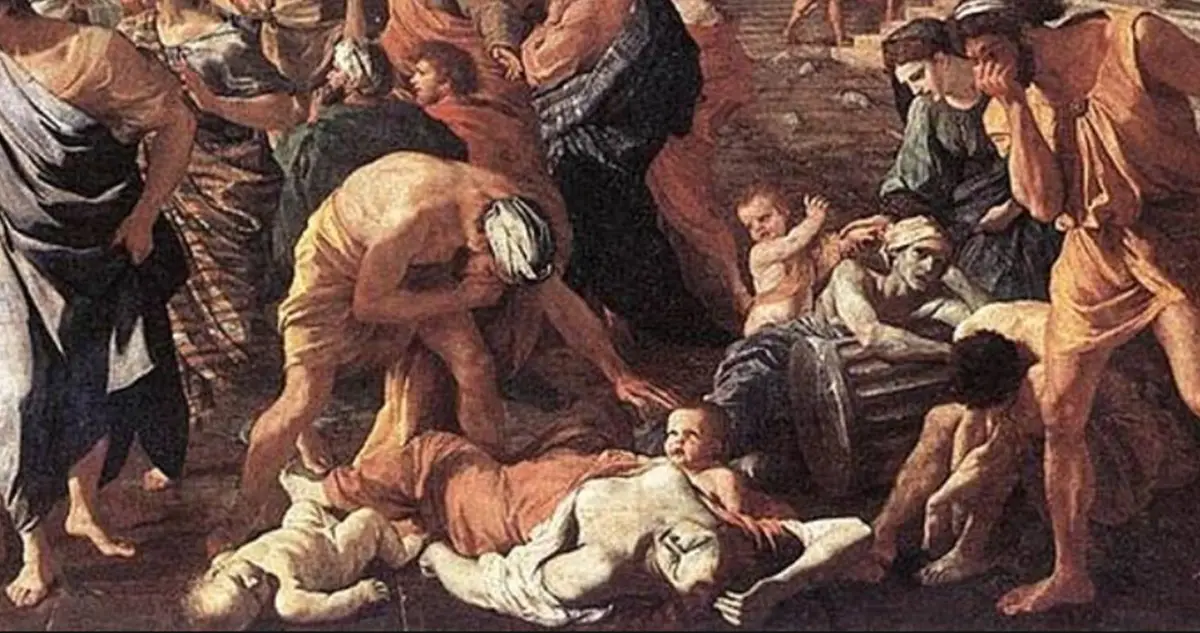. . . . "The first act of history is often farce,” Kyle Harper muses in The Fate of Rome: Climate, Disease and the End of an Empire (2017), regarding the ascension and fall of emperor Maximinus in the 3rd C.
This emperor was the first of the "barracks emperors", those put in power by the army (paying off the army). This particular guy was such a clown that the army that put him there, took him outta there, not that long after.
In other words, people breathed a sigh of relief that this fool was gone -- the creator of the farce he was making of Rome, to those of the Empire, and those outside of it, by his behaviors and stupidity -- only to be succeeded by worse and more competent usurpers, opening that long period that essentially led to the first partitioning of the empire, as so much of what Romans had been used to for hundreds if not thousands of years, began to disappear, along with population and institutions.
[Or, as Dr, Jeet Heer muses, romperisto is not the Mussolini, he's the Gabriel d'Annunzio who heralds the arrival of fascism.]
Endemic pandemic is inevitable for cultures as the Empire was in that century, dense, urban and widely connected -- and are experiencing climate change, all of which happened at the end of the Roman Warm Period, or Roman Climatic Optimum (RCO). This period ran from approximately 250 BC to AD 4, so much so that Theophrastus (371 – c. 287 BCE) wrote that date trees could grow in Greece if they were planted but that they could not set fruit there.

The Antonine Plague Decimates Rome
These beneficent conditions change for good in the mid 3rd century as the empire transitioned into late antiquity, losing its resilience to recover from various crises due to the pressure of pandemic diseases and climate change.
The Fate of Rome is astoundingly good, with all sorts of pointers as to what we're facing and up against, the same now as then (differences being mainly germ theory and vaccines, as well as being able to study the past with technology beyond even Roman imagination) as he traces the combination of pandemic and climate change's effects on the Roman empire -- and the whole world for that matter, since the world's connectivity had NEVER had such global through lines before, and there had never been so many cities, not only in this empire, but in the Asian empires too. With those cities came relentless push into the habitats of the wild -- and so, pandemic. There hadn't been any, previously, at least in the west before the 3rd C, as any evidence for same is missing from both recorded records and forensic archaeology. The West and the East seemed to mirror each other during the era of the third Century - 6th-7th Centuries C.E., as Michael Wood observes in his The Story of China: The Epic History of a World Power from the Middle Kingdom to Mao and the China Dream (2020). Coincidentally Wood's book is enthusiastically blurbed by Tom Holland, author of Persian Fire (2005), which thoroughly enthralled me as well.
Harper's latest, Plagues upon the Earth: Disease and the Course of Human History (2021), is likely just as good Fate of Rome -- and contains some of the same material one would guess. shows that the story of disease is entangled with the history of slavery, colonialism, and capitalism. He is particularly concerned in this books with the relationship between poverty and health. Perhaps, partly, because as good as The Fate of Rome is, it got no attention in the media, whereas, of course, this later one, while we are in our own era's pandemic, has.
Harper is professor of classics and letters at the University of Oklahoma. He is the author of Slavery in the Late Roman World, AD 275-425 and From Shame to Sin: The Christian Transformation of Sexual Morality in Late Antiquity. He lives in Norman, Oklahoma.
https://time.com/6103612/covid-pandemic-vaccine-smallpox-eradication/

